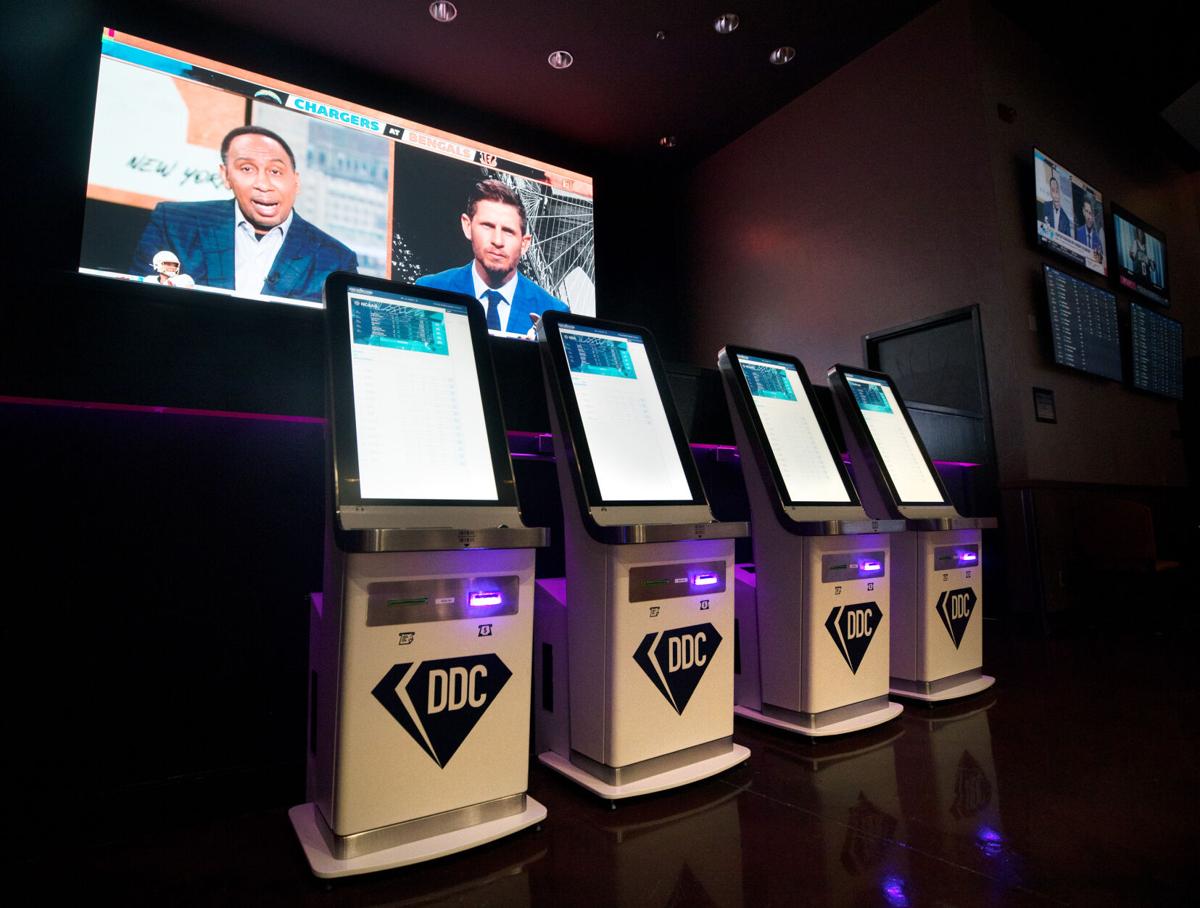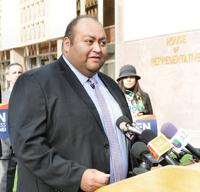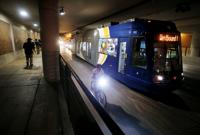The distracted legislators, rushing to conclude a long session, didn’t seem to know exactly why they were considering a gift to the new sports-betting industry.
But the majority went ahead and did it anyway.
It was June 21, and the House Appropriations Committee was focused on passing budget bills, which is why I was watching. They also were considering a few stragglers like HB 2855. That bill capped the tax rate the state can charge on sports-betting profits at 10%.
“Why would we cap the amount of revenue that we could possibly generate from this in statute?” Rep. Kelli Butler asked. “Are we helping them with demand? They don’t seem to have a demand problem.”
It was a good question. And no they don’t have a demand problem — far from it.
After the Legislature legalized sports betting last year, the industry boomed in the state, mostly through people using online betting apps.
In March, the last month for which detailed state reports are available, bettors placed about $690 million worth of wagers with Arizona licensees. That gross revenue produced $1.9 million in “privilege fees” — the taxes that Arizona charges on sports betting.
In April, the numbers were on a similar scale: $512 million in wagers during the month, yielding about $1.6 million in revenue for the state.
If the tax revenue sounds small from this new industry that itself was a gift to licensees, that’s because it is. We didn’t tax sports betting highly enough before this law passed. Now it will be hard for us ever to do that.
Granted the state is not charging its fee on the licensees’ gross revenue. The companies subtract gambling winnings they’ve paid out, which constitute the majority of their revenue, as well as free bets that they give out as promotions. Then we tax the rest, what’s known as their adjusted gross revenue.
It apparently was the Arizona Coyotes hockey team that brought the proposal to the Legislature. Their sports betting head, Andrew Diss, explained the idea this way at a Feb. 22 hearing:
“We believe this will provide certainty and predictability when it comes to the sports betting operators to make investments in their business,” said Diss, who came to Arizona from the Nevada industry. “To give you an idea of tax rates in surrounding states, Nevada is at 6.75%, Colorado is at 10%. There are currently two ballot questions that have qualified in California that are going to be at 10%.
“When you look at the landscape surrounding Arizona, 10% is that sweet spot that makes our businesses viable and able to grow.
Forgive me, but I don’t see why we should care about the growth or viability of their business. This is not a business that creates anything, certainly not significant tax revenue. It’s an “entertainment” business that, on aggregate, takes from Arizona bettors and gives them a little thrill in the process.
Still, I might be more sympathetic if they paid substantial taxes. This, tax revenue, was used to sell the legalization of sports betting.
But it’s producing so little compared, for example, to marijuana. Also a vice that became legal in 2021, marijuana sales are being taxed highly: The local and state sales tax (in most places around 10%) plus a 16% excise tax.
In March and April, marijuana taxes were an order of magnitude bigger than sports betting taxes, and then some. In March, marijuana produced about $23 million in revenue, and in April about $22 million, a lot more than the less than $2 million in taxes during the same months from sports betting.
What explains the disparate treatment of these legalized vices? Well, the first, marijuana, was passed through an initiative opposed by the state’s power structure. Sports betting was passed by the Legislature and benefited the power structure — namely the biggest professional sports teams and events in Phoenix.
The Arizona Cardinals, Arizona Diamondbacks, Phoenix Suns, Arizona Coyotes, Phoenix Mercury, TPC Scottsdale (home of the WM Phoenix Open golf tournament), Phoenix Speedway and Arizona Rattlers all received licenses and made agreements with sports betting firms.
In fact, the rate-cap bill was just one of two bills the Coyotes floated this year. The other would have suspended the requirement that sports teams have a minimum 10,000-seat venue to retain their retail betting license. The Coyotes will temporarily be playing in a 5,000-seat Arizona State University arena.
The Arizona Indian Gaming Association opposed the idea, and it ultimately failed.
The Coyotes’ Diss justified capping the tax rate on betting profits by noting that currently it is an administrative body, the Department of Gaming, that can change the fee structure, through its rulemaking process.
“We have a public policy concern, where we’re more comfortable with an elected body like the Legislature setting tax policy, rather than delegating that authority to the director of a single state agency,” he told the Senate committee in February. “You guys are all accountable to the voters.”
They’re easier to buy off, too, I would add, with the money teams have to donate and the tickets they can give away.
If he really wants sports betting tax rates to be accountable to voters, I would suggest we have a multiple-choice referendum. Voters could choose whether to impose a 5%, 10%, 15% or 20% rate on sports betting profits. I could live with the voters deciding.
Instead, what happened was a Legislative majority, sympathetic to the power structure and liking the sound of capped taxes, passed the bill on one of the last days of the session. Then they rushed out the door.
For Star subscribers: The Pima County Attorney's Office review of old cases and asking them to be rebuilt demands a lot from investigators and witnesses.
Daniel Hernandez has led with the most memorable part of his biography in the videos for this campaign for Congress — his heroism on Jan. 8, 2011. It would be nice to see him move on.
For subscribers: A lot of locals struck a deal with Tucson to accept its flaws in exchange for a cheap, easy life here. The spike in housing prices ended that and left people wanting more.








